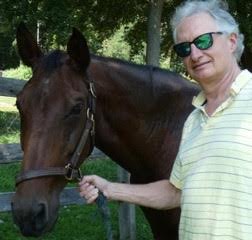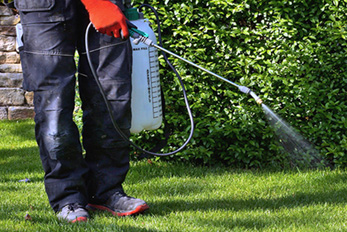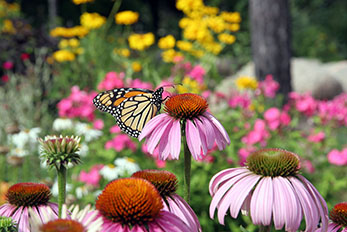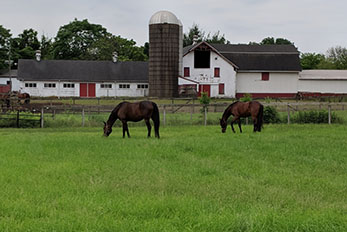Main Content
Study conversational Spanish and gain a technical vocabulary designed specifically for those who supervise or work closely with an agricultural/horticultural workforce.

Jump to: Register | Course Details | Overview | Instructor | Reviews | CE Credits | Policies | Contact Us | Related Courses | Join Email List
Register Now
Pay with Credit Card:
Pay with Check, PO, or Money Order:
Course Details
Course Name: Spanish for Ag and Horticulture Workforce
Course Code: AB0103WA26
Course Opens: January 16, 2026 at 12:00 am EST
Course Closes: March 6, 2026 at 11:59 pm EST
Location: Online
Format: Self-paced*
*Participants can complete the course content (which will take approximately 21 hours) at their own pace anytime during the period the course is open. If you are registering while the course is already in session, please note that you will still need to complete the content within the time allotted. No time extensions will be allowed for late registrations.
Registration Fee: $825 per person
Early Bird Discount Fee: $795 per person (Expires January 9, 2026)
Registration Closes: January 15, 2026
Paying with a check, money order, or purchase order?
Payments should be made out to: Rutgers, The State University of New Jersey
Checks and money orders should be mailed to: Office of Continuing Professional Education, Attn: Registration Dept., 102 Ryders Ln, New Brunswick, NJ 08901-8519
Purchase Orders can be mailed to the address above or electronically sent to registration@njaes.rutgers.edu.
Course Overview
Learn to communicate with Spanish-speaking workers! This class teaches common Spanish phrases and cultural concepts.
This course is a “guided independent study.” You will have 24/7 access to the online modules. You will be able to schedule optional sessions via ZOOM with the instructor.
In today’s agricultural environment, with a workforce comprised primarily of Spanish speakers, leading and communicating effectively in Spanish is of utmost importance. Communication is the key to effective leadership, and without a basic, working vocabulary in Spanish, the agricultural supervisor will not be able to tap into and realize the full potential of their employees, leading to a positive economic outcome. This course focuses on functional Spanish, which is used purely for communication in agricultural settings. As such, students will be able to communicate with their workforce in basic Spanish, will be able to understand and appreciate Latin American Culture as it pertains to the agricultural work environment, and they will be able to provide resources to their workforce that will assist them in their daily lives.
As the number of Spanish-speaking individuals seeking employment in the agricultural field continues to grow, “it is not surprising that language and cultural differences are becoming significant challenges for farmers (and others) hiring Hispanic labor. One strategy for addressing these issues is for farm managers to invest in language and cultural training” (Baker and Chappelle, 2012). Connecting with the workforce at the linguistic and cultural levels is an essential skill for today’s agricultural professionals. This course is designed to respond to those needs. Students will engage in beginning, conversational Spanish designed specifically for a supervisor of an agricultural workforce. At the same time, students will explore the cultural diversity of the Spanish-speaking world. The course will also assist the student in understanding the basics of the Spanish language and will provide a technical vocabulary in a wide range of related fields such as crop production, landscaping, horticulture and food science.
Course Structure
Recorded instructor lectures, coupled with websites presenting the fundamentals of Spanish grammar, will provide instruction. The instructor will be available to support participant learning throughout the course with office hours and scheduled communications via phone or video chat. Learning a language is an active process and participants are strongly encouraged to engage with the material through the multiple assignments presented during the course and to practice vocabulary terms, etc.
Course Learning Objectives
As a result of this course, students will be able to:
- Recognize and utilize simple spoken and written words and phrases common to workplace communications in an agricultural setting.
- Recognize select common gestures and cultural practices associated with the target culture and relevant to the workplace environment.
- Explore and understand basic Spanish linguistic structures associated with the agricultural industry.
Here of some of the types of activities we will explore this semester to help meet the learning goals:
- Recognize and utilize spoken or written words and phrases in authentic agricultural materials.
- Recognize common gestures and cultural practices associated with the target culture and relevant to the workplace environment.
- Explore and understand basic Spanish linguistic structures associated with the agricultural industry.
- Understand, recognize, and demonstrate simple oral and written directions and commands.
- Ask and respond to simple questions, make requests, and express preferences.
- Manage, organize, and evaluate simple work orders/plans.
- Discuss the weather and the possible impacts that the weather could have on the work schedule.
- Understand, from a culturally relevant perspective, that the words we choose impact different peoples in different ways, and that unintended consequences can and do occur.
- Identify and choose certain words that encourage positive outcomes in the workplace.
Meet Your Instructor
John Allen

Professor Allen has been teaching at SEBS (Rutgers) since 2019 and in the Spanish and Portuguese department (graduate level) since the summer of 2022, after a 20-year career in public education. During the academic year 2021-22, he taught Spanish at Seton Hall University. Earlier in the Fall 2022 semester, he became an Affiliate Member of the Graduate School Faculty in the Spanish Department.
While teaching at the high school level, he taught Spanish (Levels 1-4 plus AP), and, in addition, he taught an elective course (in English) that drew heavily on his previous experience in business management. Moreover, he was the World Language Department Coordinator, leading a group of 14 World Language teachers. His business management experience (in an automobile processing company based in Port Newark, NJ) gave him insights into leading a diverse group of workers, many of whom came from Europe and some from Latin America. His knowledge of Spanish made him a valuable member of the company, and by being bilingual (and bi-cultural), he could communicate with the workforce while earning their respect. (As a student in this class, you will learn about leadership roles in various settings, such as diversity, ethics, inclusion, and outgroup issues.) Recently, he has added the title of business consultant to his professional portfolio.
He lives with his wife on a 77-acre horse farm in Central Jersey. He is an avid runner and bicyclist. He presented a paper on politics at the SCOLAS conference in San Antonio, Texas, on governments in Latin America and wrote a literary review of a play published in a journal (based in New Mexico). In the same journal, an essay of his on jazz appeared in 2021 and an interview with a singer-songwriter based in Colombia has recently been published. He and his wife (an art educator and an artist, in addition to being an equestrian rider) travel whenever they get the opportunity (Latin America, Europe).
Student Reviews
“Learning Spanish has been incredibly helpful in my work in agriculture, allowing me to connect with community members who primarily speak Spanish. This course was a great experience and has prepared me well to make a real difference in the agricultural field.”
– Anahi Nicolas Gaspar, B.S.
Urban Farm ManagerContinuing Education Credits
The Spanish for Ag and Horticulture Workforce course is approved for 2.1 Rutgers CEUs (21 contact hours).
Course Requirements and Policies
 Required Textbook
Required Textbook
Please note that the course text is required to get the most out of the course. It was chosen for its numerous activities, practice situations, workplace scenarios, and cultural comparisons that are presented in a manner that is welcoming and friendly to the novice Spanish speaker.
You can download the book for the class here:
Baker and Chappelle. 2012. In Vermont, Se Habla Español: Using Occupational Spanish to Help Dairy Farmers Manage a Changing Workforce. Journal of Extension. Volume 50. Number 3.
 Technology Requirements
Technology Requirements
This course will be delivered using the Canvas learning system and also Zoom. You will receive email instructions about accessing the class one week prior to the start date.
Equipment you will need to access this training:
- A computer, tablet, or smartphone
- Microphone is necessary if you’d like to ask questions on a live Zoom session.
- Webcam is optional but not necessary
- Speaker is necessary to hear the instructor on an optional live Zoom session.
 Email Requirement
Email Requirement
A unique email address is required for each registrant to register and access our courses.
- If this is your first time registering with us, please provide your own unique email address when registering; do not provide an email address that you share with co-workers.
- If you have previously taken classes with us and have used an email address that you share with your co-workers or supervisor, your account must be updated with a unique email address. To do this, please send an email to us at registration@njaes.rutgers.edu stating that your email address needs to be changed and include:
- Your full name
- The shared email address that needs to be changed
- Your unique email address
- A phone number where you can be reached if we have any questions
 Photo ID Requirement
Photo ID Requirement
Each registrant will be asked provide a photo of him/herself holding their government-issued photo ID. This is required by credit boards so that you may receive credits for participating in this online course.
- You will receive a reminder email prior to the start of the class with further instructions. Wait to receive these instructions before you attempt to upload your ID.
- The photo must be clear enough that we can read your name and verify that the person pictured on the ID is in fact the person holding it.
- After an OCPE staff member reviews the picture and verifies your identity, you will have access to participate in the course when it begins.
 Cancellations and Substitutions
Cancellations and Substitutions
A $35 cancellation fee applies for this course. Substitutions are permitted. View our cancellation policy.
Program Questions? We’re Here to Help!
If you have any questions about Spanish Language/Culture for Agriculture and Horticulture, please don’t hesitate to reach out to us.

Program Coordinator: Joe Canzano
848-932-7317
joe.canzano@rutgers.edu

Administrative Assistant: Damiana Parada
848-932-7107
damiana.parada@rutgers.edu
For registration assistance, please contact our Registration Department at 848-932-9271, option 2 or email registration@njaes.rutgers.edu.



